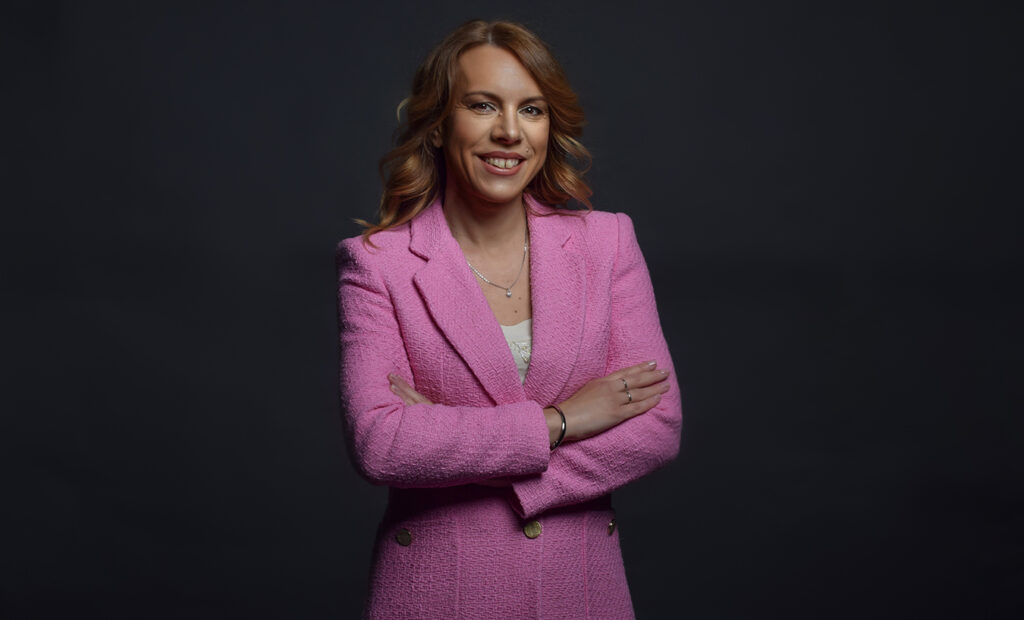We have also formed an ESG team in the company, in which our colleagues from all Delta companies are participating and whose task is to apply innovative solutions in environmental protection
Delta Holding has been successfully doing business in Serbia and in its business plans is also focusing on the international market. The company is also active in environmental protection, as it invests in the establishment of energy-efficient systems and is working in line with the plan that is harmonized with the company’s current sustainable development strategy. We talked about these topics with Tijana Koprivica, Chief Business Sustainability Officer at Delta Holding.

Could you tell us more about the company’s activities toward reducing the negative impacts of business on climate and environmental protection?
Delta has been implementing modern technical and technological solutions in business since its formation and follows global trends. For years, we have been involved in projects such as Low Carbon, Cleaner Production and others that aim to map critical points in work processes to reduce the negative impact on the environment. Of course, since 2015, we have been acquainted with the sustainable development goals and in that sense with global initiatives to reduce the impact on climate change. In 2021, we conducted an energy audit with external consultants, the result of which clearly showed that we do our business prudently and are very aware of our consumption of energy, water and other resources. Our new office building is LEED Gold certified, and recycled materials such as UNIDOM plastic balls have been used in its construction, which, in turn, has reduced the use of concrete and thus CO2 emissions.
“Our new office building is LEED Gold certified, and recycled materials have been used in its construction”
The façade of our new office building is made of the latest materials, and we have a modern ventilation system and ionizers that both use energy optimally, so the air is of excellent quality. Our roof has two mini solar power plants while a rainwater tank is used for the collection of the so-called technical water. Delta House also has an efficient waste management system. In the ground floor garage, we have a recycling island where the separation of all types of packaging waste is done by the system packaging operator Delta Pak. Delta Pak, a packaging waste management operator and environmental consultant, is tasked with improving the environment and helping us to implement environmental principles for more than 300 clients.
We have also formed an ESG team in the company, in which our colleagues from all Delta companies are participating and whose task is to apply innovative solutions in environmental protection, development of employees and other stakeholders and responsible management.
Energy efficiency is an important segment of Delta Holding’s business. What energy do you use the most and how much did you invest in establishing energy-efficient systems?
I can’t give you an exact figure, but we have certainly invested around 2 million euros this year alone in improving our energy system. This includes the costs of building solar power plants at seven locations.
In 2020, you started conducting an energy audit of your facilities which showed that energy efficiency can be improved by introducing renewable energy sources which will thus contribute to reducing CO2 emissions. At what stage is this project? What have you done so far and what are the next steps?
The construction of solar power plants has been completed and they should be commissioned very soon. We have seven solar power plants (4 in factories, 2 in refrigerator units and one at the Napredak farm). DTS is the first logistics company in Serbia to include 100% electric vehicles in its fleet. With a range of 250km and a load capacity of up to 1 tonne, these vehicles will be used to transport goods from DC Nova Pazova, where three AC chargers have been installed.
What are Delta Holding‘s plans for the period up to 2030 that are envisaged by the current sustainable development strategy?
The plan is for 60% of the energy to come from renewable energy sources and to have solar power plants at all major facilities and a biogas plant on the Agrar farm.